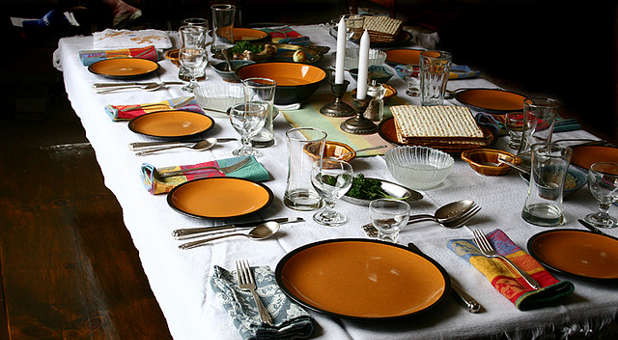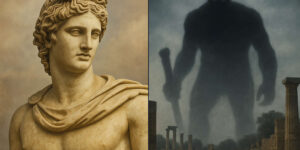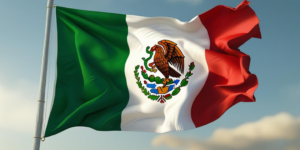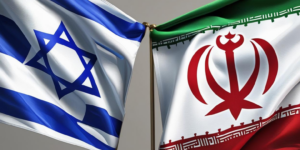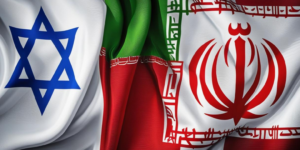Should Christians Celebrate the Feasts of the Lord?
A little over 20 years ago, I was about to go to Russia to conduct a series of gospel meetings just across the street from the Kremlin. Since the iron curtain had recently fallen, we were anticipating a powerful, spiritual awakening. Our evangelistic team was gearing up for great things. Then the unexpected happened; at the last minute, God abruptly changed my plans. He told me not to go to Russia, but to go to Israel for the Feast of Tabernacles, an annual event put on by the Christian Embassy in Jerusalem. I was in awe; why did God change my agenda so drastically? I would not find out until I arrived in Israel several weeks later.
The Elijah Prophecy
One day when the rest of the group was visiting certain sacred sites in Israel, I stayed behind in the motel to seek the face of God. “Why have you sent me here, Lord? What is it I need to understand?” Over and over I petitioned my heavenly Father for an answer. And then it came. The Holy Spirit said, “Go to the last chapter of Malachi and read. When I turned to that page, my eyes fell on the last two verses of the Old Testament:
“Behold, I will send you Elijah the prophet before the coming of the great and dreadful day of the LORD. And he will turn the hearts of the fathers to the children, and the hearts of the children to their fathers, lest I come and strike the earth with a curse” (Mal. 4:5-6).
The blinders fell off of my eyes, and I began to see vital spiritual truth. Elijah restored Israel to true worship: a more pure experience of the faith of their fathers, uncontaminated by heathen influence. My heart was quickened with the realization that God will once again in these last days send the “spirit of Elijah” (the spirit of restoration) to the church, restoring us to a more pure and uncontaminated expression of New Covenant Christianity.
John the Baptist fulfilled this prophecy on one level as the Age of the Law (which had been corrupted) transitioned into the Age of Grace (see Matt. 17:10-13). However, the Spirit of God let me know there was yet another level of prophetic fulfillment: that in the last days He would turn the “hearts of the fathers” (a reference to the natural offspring of Abraham) to “the children” (the “offspring” of Judaism, New Covenant believers in the Messiah) and there would be a powerful coming together as we become “one new man” (Eph. 2:15). We, the church (made up of both Jews and Gentiles), will turn our hearts toward the Jewish people, with Gentile believers especially realizing their Abrahamic roots, while many of the natural seed of Abraham will simultaneously turn their hearts toward the Church, receiving Yeshua (Jesus) as their Messiah, thus, becoming completed Jews.
The Feasts Are Part of God’s Plan of Restoration
This divine plan of restoration to true worship necessarily involves a renewed appreciation for our true biblical heritage, which includes THE SEVEN FEASTS OF THE LORD (Leviticus 23):
- The Feast of Passover
- The Feast of Unleavened Bread
- The Feast of Firstfruits
- The Feast of Pentecost
- The Feast of Trumpets
- The Feast of Atonement
- The Feast of Tabernacles
Whether we like to admit it or not, the Gentile brand of Christianity has been corrupted with heathen influence, including celebrations like “Easter” and “Christmas.” For instance, the word “Easter” is found only once in the Bible (Acts 12:4 KJV) and is incorrectly translated from a word that is always rendered “Passover” (pascha). The word “Easter” actually refers to the worship of a false deity named Eastre, the Teutonic goddess of spring. What do eggs and bunny rabbits have to do with the resurrection of the Lord Jesus? Absolutely nothing. They are symbols of fertility, which was very much a part of the heathen Spring Festival.
In a similar show of pagan influence, “Christmas” (Dec. 25) is all about the winter solstice, and is filled with non-biblical symbolism (yule logs, mistletoe, decorated evergreen trees, Santa Claus). Besides, only a small amount of research proves it would have been highly unlikely for Jesus to be born at that time of year, especially since shepherds would have long before brought their sheep in from the fields.
All Major New Covenant Events Coincided With a Feast
It is extremely enlightening to see that every important event that ushered in the New Covenant coincided perfectly with the celebration of a major feast. Surely, the genius and sovereignty of God caused this amazing correlation to take place:
- The Crucifixion took place during the Feast of Passover.
- The Resurrection took place during the Feast of Firstfruits.
- The Outpouring of the Holy Spirit took place during the Feast of Pentecost.
Following this pattern, it is very logical to believe that the Messiah was probably born around the beginning of Fall, when shepherds were still in the fields and when the Feast of Tabernacles was being celebrated (a feast that symbolized how God had “tabernacled” among the Israelites during their wilderness journey). How fitting it would have been for the Messiah to “tabernacle” among us in the form of a baby, during the very feast that prophetically foretold this grand event!
How Should Christians React to This Revelation?
There are two ways knowledgeable believers should react to this vital insight:
First and foremost, I believe every New Testament assembly should celebrate the feasts. However, if these festivals are ever exalted to the point of being required ritual and a necessary part of being righteous before God, religious legalism has entered the picture and the Crucified One is robbed of the glory He alone should receive (see Gal. 2:21; 4:9-11, 5:1-4).
We should honor the feasts of the Lord because they are replete with symbolism about the full plan of salvation, but not to the point where we give more importance to the mere natural symbols than the glorious supernatural events they symbolized. Yes, we must guard against being too caught up with the “shadow,” when we who are born again are blessed to actually possess the “substance” of what the feasts foretold. The spiritual reality is much more important than the natural foreshadowing. For instance:
- It is far more powerful to be washed in the blood of Jesus (the true Passover Lamb) than to eat a Passover meal.
- It is far more powerful to actually be filled with the power of Pentecost (the baptism of the Holy Spirit) than to learn how the firstfruits of the wheat harvest were offered on that notable day.
- It is far more powerful to have the Messiah “tabernacle” in your heart and life than to build a sukkah in your church or in your back yard (the traditional, small, three-walled structure that Jews erect to remind them of the wilderness journey that took place thousands of years ago).
Second, do not become haughty, harsh, judgmental and super-religious about traditional Easter and Christmas rituals. Children who participate in an egg-hunt are not worshipping the goddess of fertility. They are having fun on a very special day devoted to the Savior conquering death. Families who give gifts around a Christmas tree are not honoring the “rebirth” of the sun-god. If they are spiritual at all, they use that day as a reminder to their children and the world around them that heaven’s greatest gift came to the world about two millennia ago. So the continuation of some of these celebrations is really a personal choice and in many ways, is not an important matter.
So the real issue is not whether or not Christians should celebrate the biblical feasts, or whether or not we continue celebrating the traditional festivals of Easter and Christmas. The most important issue is that the Son of God came and He made a way for us to have eternal life.
Let’s celebrate that every day of our lives!
Mike Shreve is the author of the best-selling Charisma House book, 65 Promises from God for Your Child. He and his wife, Elizabeth, pastor The Sanctuary in Cleveland, Tennessee and their church celebrates the First Testament feasts from a New Testament perspective. His new book, Powerful Prayers for Supernatural Results will be released this November.



